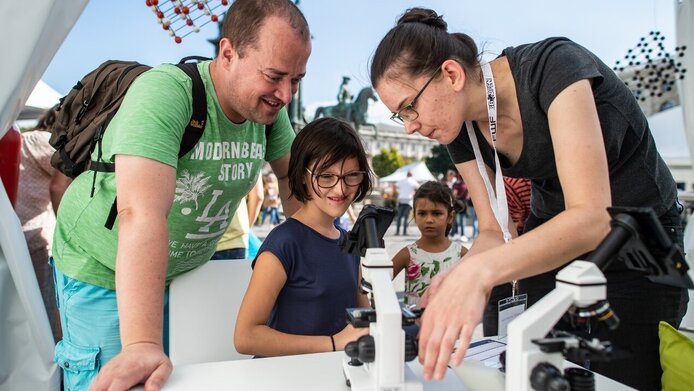Equality: a question of openness

If a woman wants to succeed in a male-dominated professional field, she has to be ambitious and combative, she has to overcome social prejudice, she needs to adapt or come to terms with being different and should ideally have a supportive social environment. All of this and things along similar lines are what many women say when describing their career trajectories in science and engineering. The conclusion: what counts most is individual willpower and one's personal style of coping with obstacles in an environment in which women are still in the minority. “Decisions and career paths are often described in individual terms”, notes Marita Haas, “but they cannot be considered in isolation from external conditions and organisational structures”. In order to gain a deeper insight into the interdependence of individual and external gender factors in professional life, the social scientist investigated women’s biographies. One of the elements in her FWF-funded Firnberg project were biographical narrative interviews that Haas conducted with women scientists in technical professions.
Encouraging environment
“When people tell you their stories in this open way you learn a lot about the interconnections between a person’s biography and institutional and social framework conditions”, Haas says in explaining the advantages of this type of biographical research. The analyses show that, as a rule, women who opt for male-dominated professions have experienced an encouraging environment. Such an environment can be provided by the family, the school, a mentor or the organisation itself. This suggests that an open-minded approach makes it easier to pursue unusual career paths. If a woman has a sense of "the world is my oyster", this attitude usually springs from an education-friendly family environment which encouraged the offspring to try things out or opt for unorthodox paths. “Our results show that it is less a question of role models than of a certain unbiased approach to life and career planning”, explains Haas. According to the expert, the much-bemoaned lack of role models is less important than the lack of structures to anchor gender equality in relevant areas such as education and economic life.
Many efforts, meagre results
Numerous initiatives have been set up throughout Europe to get girls and young women interested in MINT subjects (mathematics, information science, natural sciences and technology). Gender equality is one of the 17 United Nations sustainability goals. However, in its biennial surveys the European Institute for Gender Equality has shown that real change is still hard to come by. “While we can see that ‘girls' days’ and mentoring programmes are perceived as supportive in an individual context, they have little impact on the overall situation”, affirms Marita Haas, who also advises companies and NGOs on the subject of gender and diversity. She considers it more important to address the question of what funding structures must look like if they are to foster cooperation on an equal footing or how recruitment processes are structured. According to Haas, this may include revising mentoring schemes by making the guidance work both ways. “New employees have a fresh perspective.” Haas emphasises that gender issues must be taken just as seriously as any other business objective in order to propel companies on the road towards equality. “This will only happen if it is implemented top-down or through quotas. I understand why quotas are criticised, but just watching how nothing happens is much worse.”
Stereotype role expectations prevail
In the interviews with women scientists in MINT fields, Haas identified predominantly 2 types of experiences: “I am different” and “my life is unexceptional”. “These are two sides of the same coin”, says Haas. That means women either highlighted their minority status and the obstacles associated with it, or they adapted to the prevailing culture on the basis of performance-oriented principles. The results go to show that gender is implicit in all rules and norms, says Marita Haas. “These structures seem so strong that the women can't help but tell a story that faces up to their being different.” The results of the project show that structural measures such as quotas and diversity initiatives are essential in order to abandon for good established gender roles and achieve the real goal, which is ensuring equal opportunities for women to have a share in power, earnings and decisions. Haas is convinced that scrutinising one's own biography can help in making career decisions regardless of gender identity. For young people, for instance, the decisive question could be: what am I right now, instead of what do I want to be?
Personal details Marita Haas is a social scientist with a focus on gender and biographical research. Until 2017 she held a Hertha-Firnberg position at the Institute for Management Sciences at TU Wien. Haas is a lecturer at various universities and advises organisations and companies on diversity and equality.
Publications





